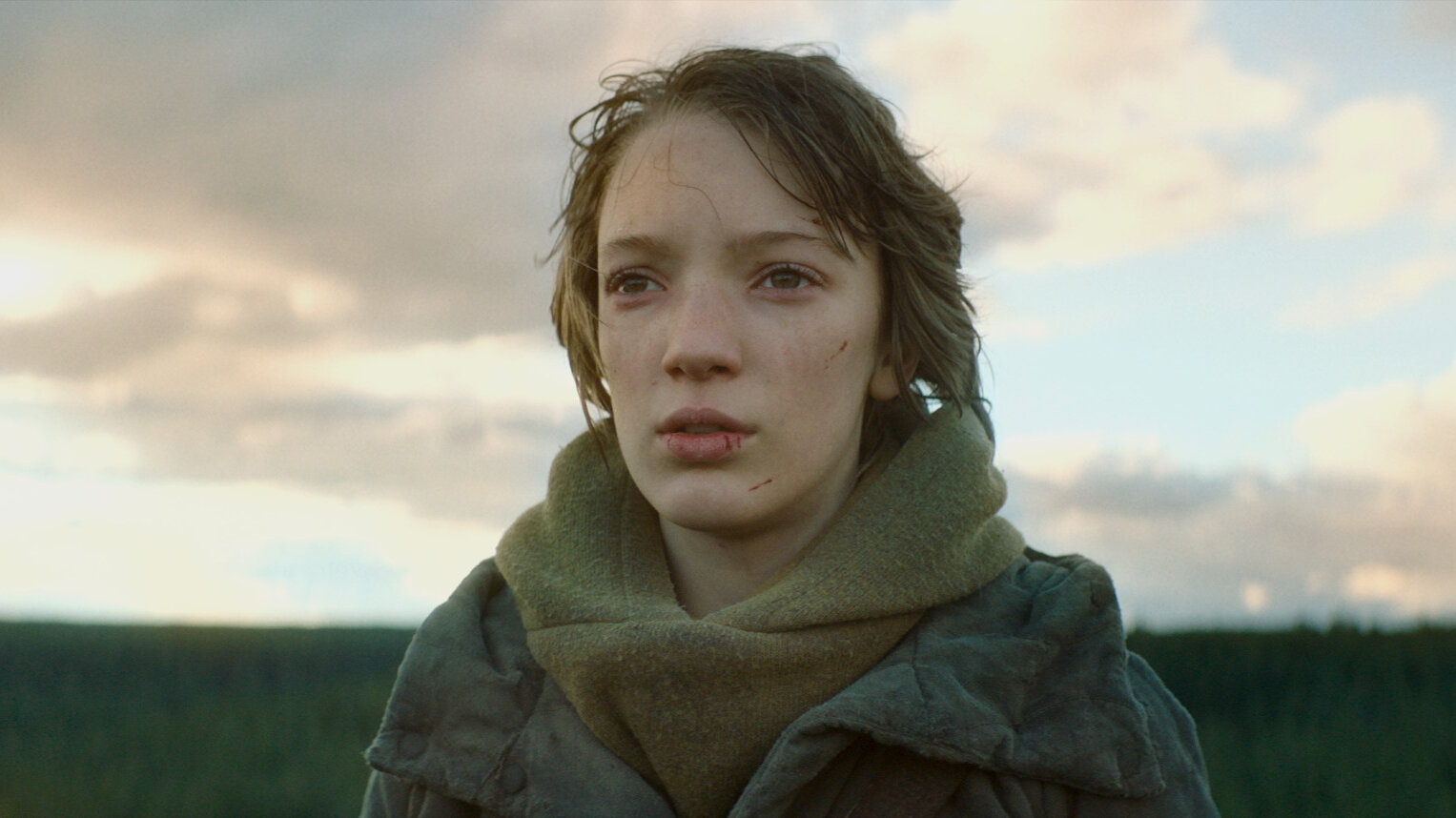‘Vesper’ Is a Dreamy Science Fiction Fable With an Urgent Ecological Warning
4/5 glowing fungi

Vesper (Rafiella Chapman), the main character of the new indie science fiction film of the same name, is a 13-year-old girl who lives in a world that’s been rendered bleak and strangely beautiful by environmental catastrophe. The land around Vesper is filled with otherworldly fungus that might glow and brush a character’s finger in greeting—or dig a ravenous proboscis into an open wound. Half of humanity lives in enclaves called citadels, which keep their inhabitants alive in exchange for total subjugation. The other half scrabbles for survival in the wilderness, harvesting bacteria and selling their children’s blood to the citadels.
Vesper lives on the outskirts of a small town in the forest, taking care of her paralyzed father Darius (Richard Brake) and experimenting with genetic editing. She has a knack for science, and she dreams of using her talent to earn herself a spot in one of the citadels. When Vesper meets Camellia (Rosy McEwen), a citadel citizen stranded in the forest, Camellia promises to get Vesper in if Vesper can help Camellia get home. But Vesper’s cutthroat uncle Jonas (Eddie Marsan) is also hunting for Camellia, and it soon becomes clear that Camellia isn’t telling the whole truth about what she’s doing beyond the citadel’s walls.
The most arresting aspect of the film is the landscape, with its hypnotic mix of mist-shrouded pine forests (the film was shot outside of Vilnius, Lithuania) and candy-colored fungus. To Vesper, the citadels are distant, almost mythical entities, their only mark being the semi-organic aircraft that fly overhead and leave echoing whale songs in their wake. A mysterious order of pilgrims roams the land gathering scrap metal, and their behavior is so inscrutable that Vesper wonders if they’re being controlled by a virus. The movie paints a portrait of a planet that’s recovering from an old, deep wound, and you get the sense that its recovery won’t leave much room for humans.
The dynamics between the different factions of humans is interesting, too. The citadels are the unquestioned villains in Vesper’s world, hoarding resources for their own citizens while genetically “locking” seeds so that the resulting plants can’t reproduce, which keeps everyone on the outside dependent on the citadels for food. (Note that terminator genes in seeds aren’t science fiction. The film takes this diabolical plot straight from real world agritech companies like Monsanto.) Instead of rising up against the citadels, though, the people in the wilds fight each other, with would-be crimelords like Jonas price-gouging and stealing from anyone weaker than them. Even Vesper can’t imagine a better world than the one she’s stuck in—at least, not at first—and that cynicism makes her an antihero you want to protect.
Most of the movie is dreamily atmospheric, existing in the place where science fiction drifts into mysticism, and it only starts to stumble when the action ramps up in the third act. Vesper and Camellia, hunted by Jonas and the citadel authorities, have to make a daring escape from their doomed home, and they wade through a series of tired tropes and clichés on their way. Be ready to sit through scenes full of “I’m not leaving you!” and “Don’t leave me!” when you’d rather just watch the characters play with Vesper’s fungus garden some more.
Still, even when the movie drags or the outcome of a scene is so obvious that you just want to get it over with, the film’s melancholy, allegorical ending is a satisfying payoff. Vesper spends most of the movie wading through the claustrophobic hopelessness all around her, but at the end, she finally finds new terrain to explore and a literal handful of hope. She finally comes to understand that there’s a way to fix her broken world, even if she probably won’t see its full effects in her lifetime.
Like all good ecofiction, Vesper is as much a warning as it is a meditation on nature and technology. What future are we headed for if the agricultural industry continues to lock our food supply behind genetic copyright and infertile seed? How can we avoid repeating the power dynamics of those at the top, and instead find solidarity so that we can create a more just and fertile world? Like Nausicaä of the Valley of Wind and Paolo Bacigalupi’s The Windup Girl, Vesper will leave you wrestling with these questions—and perhaps working to find a solution.
Vesper is playing in select theaters and streaming on Amazon Prime Video and other platforms.
(featured image: Condor Entertainments)
Have a tip we should know? [email protected]
